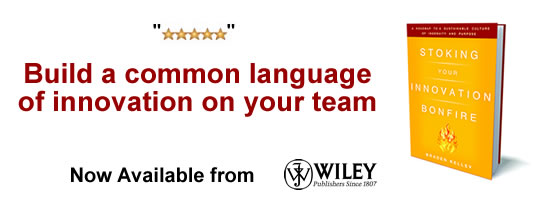How to Capture Your Strategy in a Single Sentence

If I were to ask you what your company/unit/team strategy is, could you answer in a single sentence?
Is that even possible? And even if it is, why would you want to (other than to respond to some smart-aleck strategy facilitator)?
I know it’s possible, and there are several worth reasons for stating strategy in a sentence. First, because every time I ask someone what their strategy is, I rarely get a crisp, clear answer. I usually get a medley of purpose, vision, and mission-like responses. Many times I just get blank stares, shoulder shrugs, and head scratches. Sometimes I’ll get a response akin to either “we have a detailed strategic plan” or “we don’t really have a strategy.”
Second, because a single sentence has real power.
Journalist and pioneering congresswoman Clare Booth Luce once told the story of a conversation she had in 1962 with her old friend John F. Kennedy. According to her story, she told him, that “a great man is one sentence.”
In other words, a great leader can be so well summed up in a single sentence that you don’t have to hear his name to know who’s being talked about. For example, “He preserved the union and freed the slaves.” If you’re an American, you don’t need to be told “Abraham Lincoln.”
Luce challenged JFK to think about his sentence, urging him to know the great themes and demands of his time and focus on them, to have absolute clarity on them.
Luce’s concept is a legacy sentence, a future-back statement, but I believe the same logic can apply to crafting go-forward strategy. That is, to steal Clare Booth Luce’s words, a great strategy is a sentence.
Let’s give it a go.
If you follow my strategy posts you know that my approach to strategy is the one I learned personally from Roger Martin, as contained in his book, Playing To Win. His strategic framework is an integrated cascade of five key questions:
- What is our winning aspiration?
- Where will we play?
- How will we win?
- What capabilities do we need?
- What management systems must we have?
To state your strategy in a sentence, though, you really just need the first three parts: winning aspiration, where to play, and how to win. This simple madlib-type plug-n-play is basically a tailored, more specific version of this construct:
“We want to [what to win] in [where to play] by [how to win].”
Your winning aspiration needs to spell out a clear win. It needs to be future-oriented, ambitious, and specific (thus measurable), contain a competitive element, and avoid a play-to-play goal. Your where-to-play needs some element of segmentation. Your how-to-win needs to capture your unique and defensible value proposition, which briefly outlines why you’re a better choice over rivals.
Here are some quick examples:
- We want to lead the U.S. luxury performance sedan segment by offering higher quality and competitive design for one-third less.
- We want to have a top-ranked 5-star property in every market that will support a luxury hotel by providing a home-away-from-home, office-away-from-office experience.
- We want to capture the short-haul air travel market with high-frequency flights and efficient service to secondary airports at a price that rivals driving.
You probably don’t need to be told “Lexus,” “Four Seasons,” or “Southwest Airlines.”
(Note: By substituting “I” for “We” you can craft your own personal/professional strategic sentence.)
Try it. State your strategy in a sentence. Done right, it prompts the questions of capabilities and systems you’ll need to produce the win you aspire to in the space you’ve chosen. It begs strategy’s magic question: what must be true for this strategy to a good one?
Share your sentence with those in your charge. Watch the fog lift. Watch people sign up for the win.
Then when some smart-aleck strategy facilitator asks you what your strategy is, you can look him squarely in the eyes and lay him flat in a single breath.
Now that is a win.
Wait! Before you go…
Choose how you want the latest innovation content delivered to you:
- Daily — RSS Feed — Email — Twitter — Facebook — Linkedin Today
- Weekly — Email Newsletter — Free Magazine — Linkedin Group
 Matthew E. May is the author, most recently, of Winning the Brain Game: Fixing the 7 Fatal Flaws of Thinking.
Matthew E. May is the author, most recently, of Winning the Brain Game: Fixing the 7 Fatal Flaws of Thinking.
NEVER MISS ANOTHER NEWSLETTER!
LATEST BLOGS
Three things you didn’t know about credit cards
Photo by Ales Nesetril on Unsplash Many of us use credit cards regularly. From using them for everyday purchases to…
Read MoreFive CV skills of a business-minded individual
Photo by Scott Graham on Unsplash The skills listed on a CV help employers quickly understand your suitability for a…
Read More


